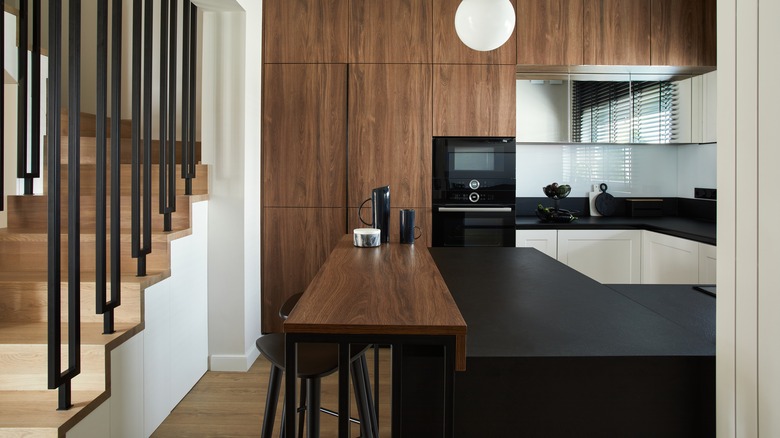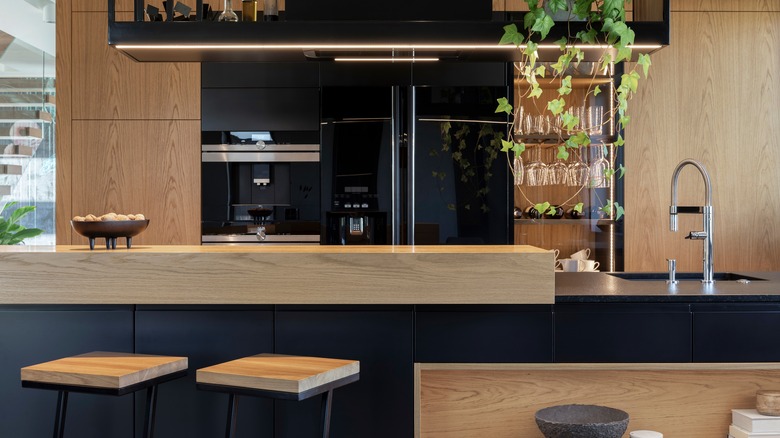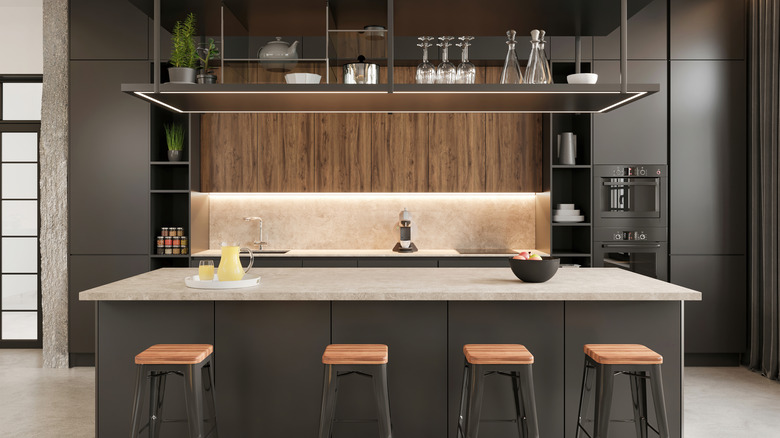Why You Should Avoid Double-Tiered Kitchen Countertops
When choosing which countertops to add to your kitchen remodel, think about all the activities that will occur in the kitchen. For instance, you'll want a significant amount of counter space if you plan to cook multiple days out of the week. So you'll want to avoid double-tiered countertops because they limit your working area. Instead, installing flat, extensive countertops is ideal.
Double-tiered countertops are divided into two levels: your workspace on the bottom level and a dining area on the top. The higher tier can prevent you from completing your tasks, such as food prep, by creating a barrier, which can be an issue for any gathering you might have. You won't be able to display multiple dishes in one area.
Interior designers are straying away from double-tiered countertops, preferring an even kitchen surface. While the two tiers add interest to the room, they can take away from the other décor and materials in the kitchen. For example, you might want to show your cabinets as the main focal point of your kitchen, but double-tiered kitchen countertops will steal their spotlight. One-level countertops add value to the kitchen's overall look without taking away from other furniture.
Double-tier countertops make a kitchen look small
If you want to change your kitchen layout or install new countertops, consider your kitchen size before making a decision. Small kitchens with double-tier countertops will appear visually smaller since they take up more space. You can get away with them in larger kitchens, but they'll become the focal point of the room instead of adding to the overall appeal. However, two-tier countertops can make the area look cramped if they're designed to take up more space, even if you have a more extensive kitchen. Moreover, you won't have enough room to walk around the counters or designated food prep areas. Add company, and the problem will get even worse.
You want your kitchen to be a working and functional space where you can prep and cook without worrying about counter space or having enough room to work on school projects with your kids. It's best to have a one-level countertop for work purposes, especially if you don't have an extra dining table or desk. In addition, two-tier countertops can be costly since they are more complex to build and require more labor time. They can elevate your kitchen's appearance but leave you with limitations.
Opt for one-level kitchen counters
Opt for one-level countertops with broad, even surfaces to get the most out of your counters. They're timeless and complement any kitchen's interior style. You can have them designed to have seating if you want to add barstools and create a breakfast bar, or you can keep them simple without seating. In addition, one-level kitchen counters are perfect for every kitchen size, giving you tons of room for cooking, food prep, or decor. They can make a small kitchen feel open and airy instead of cramped.
Double-tier countertops can break up the kitchen into sections and would be ideal for an open floor plan, which wouldn't work for a smaller space since the goal is to maximize the area and make the most out of a small kitchen. One-level countertops provide a streamlined appearance and make the room feel cohesive. They're also cost-effective compared to two-tier countertops since they don't require as many materials. The price can differ if you decide to install appliances like a sink on your island. Two-tier countertops with an added sink would decrease the workspace on the lower level, whereas one-level countertops lose a small amount of space, but not as much.


